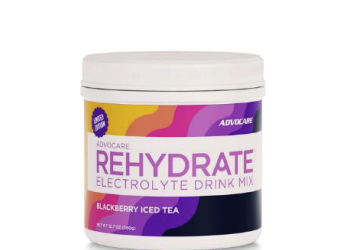
In combination with a healthy, balanced diet, supplements can help ensure you are getting the recommended daily amount of vitamins, minerals and other nutrients needed to function optimally. But which supplements should you take? And can you take too many? Today we’re discussing the topic with Dr. Jeffrey B. Blumberg, Ph.D., FASN, FACN, CNS-S.
What factors should be considered when choosing supplements to take?
The need for supplements is based on a variety of factors including dietary pattern, age, sex, physical activity, body mass index (BMI), health condition, and medication use as well as specific personal goals such as maintaining or improving cognition, physical performance, digestive health, immunity, mood, and body weight as well as reducing the risk of developing chronic diseases. It is always best to consult with your health professional to get advice on which supplements fit your needs.
Is there a supplement that everyone should be taking?
As a general rule, most Americans can benefit from a complete or broadspectrum multivitamin/multimineral.
Can I take too many supplements?
Here’s how the American population is stacking up when it comes to “shortfall vitamins and minerals” (i.e., consuming less than the Estimated Average Requirement (EAR) or Adequate Intake (AI):
- Over 40% of Americans are not consuming enough of vitamins A, C, and K or the minerals calcium and magnesium
- About 90% of Americans are not consuming enough of vitamins D, E and choline and the mineral potassium.
The average American diet is not providing adequate amounts of many essential vitamins and minerals. Indeed, a large study of U.S. adults assessed using the Healthy Eating Index, a measure of dietary quality, scored 59 out of possible 100 points, a failing grade! Other research studies make clear that taking a complete multivitamin/multimineral effectively fills the gap between usual and recommended allowances for these nutrients. While the prevalence of inadequate nutrient intakes presents a major public health challenge, evidence indicates that very few people taking several supplements are at risk for an excessive intake (i.e., above the Upper Tolerable Level [UL] defined in the U.S. Dietary Reference Intakes).
While it is possible to exceed 100% of the Recommended Dietary Allowance (RDA) through food plus supplements, this may be beneficial and is safe. It is helpful to understand that following the Dietary Guidelines for Americans to consumer 4 servings of fruits and 5 servings of vegetables daily can also exceed the RDA. For example, following this recommendation could provide as much as 8-times the RDA for vitamin C*.
Have more questions? Watch Dr. Blumberg talk more about supplements here:
Author Bio: Dr. Blumberg is a member of Advocare’s Scientific & Medical Advisory Board and an active Professor Emeritus at the Friedman School of Nutrition Science and Policy at Tufts University. His research has been largely focused on the role of antioxidant nutrients in promoting health and preventing disease. He was included in Thomson Reuters’ List of the World’s Most Influential Scientific Minds (2015) and has been cited by Mendeley Data as among the top 1% of published authors in nutrition and dietetics (2020). He has participated in activities relevant to the incorporation of sound nutrition science into public health policy, including work as a member of the Workshop on Health Promotion and Aging in the office of the U.S. Surgeon General, Sports Medicine Committee of the U.S. Olympic Committee, and Food Advisory Committee of the Food and Drug Administration.
*Equivalent to 7.43-times the RDA for men (90 mg) and 8.92-times the RDA for women (75 mg) of vitamin C. Calculated from 1 serving each of grapefruit juice, kiwi, papaya, and strawberry and of broccoli, Brussels sprouts, kale, red pepper, and yellow pepper.

Jeffrey Blumberg
Professor, Friedman School of Nutrition Science and Policy and Sackler School of Graduate Biomedical Sciences Program in Pharmacology and Experimental Therapeutics, Tufts University; Senior Scientist and Director, Antioxidants Research Laboratory, Jean Mayer USDA Human Nutrition Research Center on Aging at Tufts University, and member of AdvoCare Scientific and Medical Advisory Board.
Organizations
- Fellow, American Society for Nutrition
- Fellow, American College of Nutrition
- American College for Advancement in Medicine: Denham Harman Award and Achievement Award in Preventive Medicine
- National Nutritional Foods Association: Burton Kallman Scientific Award
- U.S. Department of Agriculture: Certificate of Merit
- American College of Nutrition: Mark Bieber Award
- Thomson Reuters List of the World's Most Influential Scientific Minds (top 1% of cited researchers, 2002-2012)
Published Works
More than 350 peer-reviewed scientific publications in nutrition science and policy.
Education
- B.Pharm and B.S. (Psychology), Washington State University
- Ph.D. (Pharmacology), Vanderbilt University




